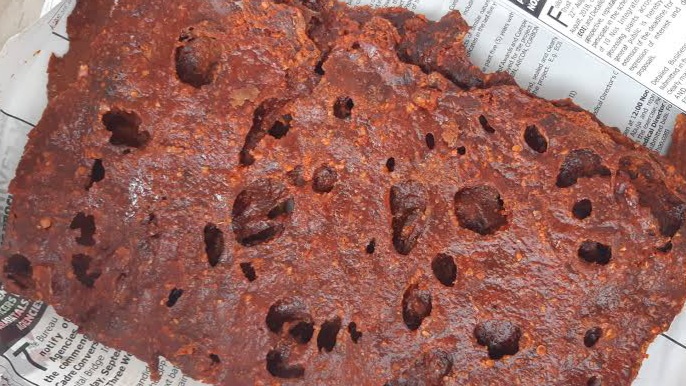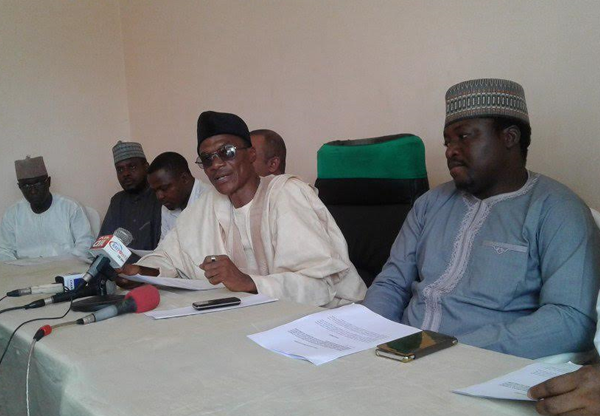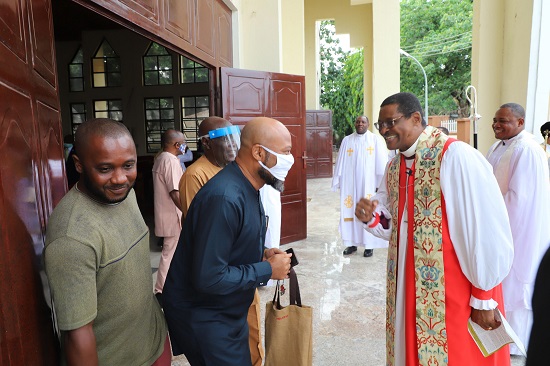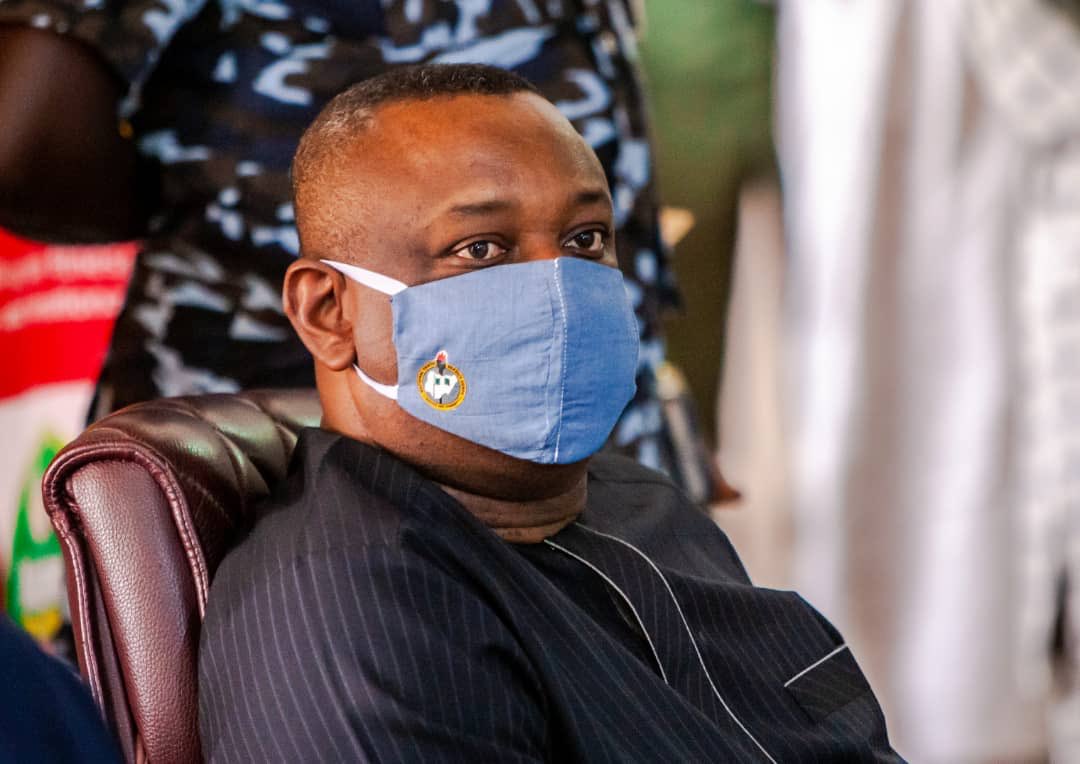A few days ago, Madagascar fired its education minister, Rijasoa Andriamanana, for attempted embezzlement. The minister had indicated plans to order more than $2.2m worth of sweets for schoolchildren to mask the bitter aftertaste of the herbal remedy for coronavirus. Explaining how the money would be utilised, the minister had explained that pupils would be given three lollipops each to take after they drink the bitter COVID-Organics concoction that the country developed to fight the COVID-19 pandemic. Unfortunately for the minister, Madagascar’s President Andry Rajoelina felt that she was looking for ways to embezzle funds in the education ministry, so he dismissed her. Some could argue that the President’s decision was pre-emptive since the minister had not even stolen any money. But, I guess the President was probably miffed by the fact that a minister could think of doing such a ridiculous thing.
Coincidentally, almost at the same time, here in Nigeria, a professor and Director General of the Raw Materials Research and Development Council, the agency in charge of developing raw materials for the nation’s industries, Hussain Ibrahim, listed Kilishi as the main breakthrough of the 33-year-old body. The only difference is that up till now, no higher authority has rebuked or punished our own DG for making such a terrible blunder. In fact, except for the shocking reaction of some Nigerians to the news report, everywhere has been quiet. As a matter of fact, there is nothing to suggest that the DG goofed. And what can Nigerians do? They too have moved on. By the way, Kilishi is a dried form of meat. It could be made from deboned cow, sheep or goat.
While it may be difficult to categorically state which is a more grievous offence between a minister ordering $2.2m worth of sweet for school children and a DG in charge of producing raw materials that cannot define raw material, one thing is clear-our own DG’s offence is unpardonable. To start with, describing “Kilishi” as a “technology” is weird. For such definition to now come from a professor and supposedly head of an agency that should be producing raw materials for the nation’s industries makes the matter worse. The situation is further compounded by the fact all this is happening in a country that has spent N19.5trn in seven years to import raw materials that could have been locally produced. It is inconceivable that a director general of raw materials agency won’t know the meaning of raw materials.
For those who probably missed the news item, Ibrahim had appeared before the Senate Committee on Science and Technology to brief lawmakers on the activities of the research agency. The Chairman of the Senate panel, Senator Uche Ekwunife, had asked him to tell Nigerians the specific raw materials that the agency had successfully produced in the area of health, brewery, construction, science, technology, or agriculture in partnership with other research institutes. In his response, the DG reportedly listed the “Kilishi technology”, which according to him, has enabled the agency to produce the dry meat for commercial use, as the agency’s only major breakthrough in 33 years. He went further to say that the agency was able to perform the feat despite not having a laboratory.
Advertisement
A simple definition of raw material is anything used to produce goods and finished products. To hear that the chief executive officer of an agency that is supposed to produce raw materials could describe Kilishi as a technological feat is something that should make any reasonable Nigerian cry. This is a nation that has been funding the economy of other countries spending N2.79trn yearly to import things that we can easily produce at home. We develop other countries’ economies at the expense of ours. We import raw materials that we can easily produce at our backyard and we don’t see anything wrong in paying some people for doing nothing. We do not only waste our scarce foreign exchange in importing raw materials from all kinds of places, we also deny our people employment opportunities. Meanwhile, the labour minister, Chris Ngige, has told us that unemployment rate would hit 33.5 per cent in 2020. If we had more people working, we would have grown the economy and this would have drastically reduced the nation’s poverty level which the National Bureau of Statistics says is currently at 40 per cent. The raw materials that this agency is supposed to develop are the things we need for producing almost all the food products we use in this country. Across the globe, smart countries strive to produce the basic materials needed for their industries and even try to have surplus for export. But, we don’t mind importing everything- This is shameful!
Let’s even assume that Kilishi is a raw material, how much can Nigeria earn from this dry meat that could make a senior government official like the DG to be so excited talking about it? How big is the total meat produce market in Nigeria in terms of foreign exchange income? In 2018, Nigeria’s total meat production was 1.45 million tonnes. Compare this to US’s approximately 23.6 million tonnes of meat produce in 2017. And it is not as if our meat production figure has been growing at any fantastic rate. In fact, the figure in 1969 was 406,963 tonnes. It has only been growing at an average annual rate of 2.79%. Meanwhile what is referred to meat produce often covers both the edible and inedible parts of an animal including the head, offers, skin, hides, the legs and several other parts. You now wonder the quantity of meat that will be available for Kilishi after we remove beef consumption in homes, hotels, restaurants, etc. How much can that add to the nation’s GDP at the end of the day. Besides, which countries is Nigeria exporting Kilishi to? Are we exporting meat to countries that produce more meat than us? Personally, I don’t know the technology involved in producing kilishi that is so special. The other time I was in Turkey, I practically had to throw away the country’s version of Kilishi, that I bought, not because it was not tasty, but because the quantity was much more than I expected for the price.
Perhaps, the DG would have performed better if he had limited his response to the information posted on the agency’s website. At least, there is nothing like “Kilishi technology” among the projects listed on the website. Besides, the projects listed are things in line with the agency’s mandate, though they are all at the pilot stage. The agency is working on things like the development of waterborne paints, automotive brake pad and lining from palm kernel shell and adhesives for the paper industry among others. These are the raw materials that can help in growing and developing Nigerian industries. If not that Nigerian leaders take the people for granted, the DG would have just talked about these projects and saved the rest of us from unnecessary anguish. After all, nobody will ask him if he understands what he’s saying or not.
Advertisement
It is not as if reprimanding this DG will bring any outstanding change to Nigeria, but at least, it will send the right signal to public office holders to be more circumspect in making public statements. We all know that the DG is a product of the cumulative rot in our system and a reflection of everything anti-merit. Unfortunately, this country will continue to wallow in darkness if we continue to follow our usual barbaric way of doing things.
I know that the Federal Government has not been fair in its budgetary allocation to the ministry of science and technology, the supervisory ministry for this agency. For example, the ministry with 17 agencies under it, had a budget of N66.8bn in the 2019 Appropriation Bill while the office of the secretary to government of the federation had N65bn. But this is not an excuse for a research agency not to have a single product to show for its 33 years of existence. And of course, citing the production of kilishi as an innovation is a complete aberration.
Deji-Folutile is the editor-in-chief of Franktalknow.com and member, Nigerian Guild of Editors. Email: [email protected]
Advertisement
Views expressed by contributors are strictly personal and not of TheCable.
Add a comment







